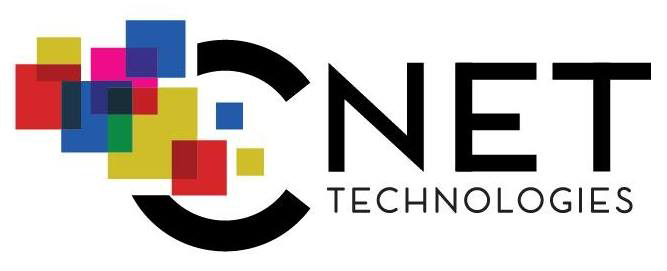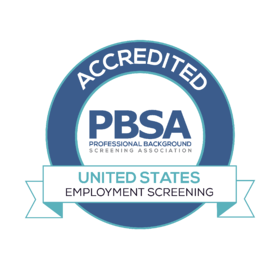The dynamics of the modern workforce are changing rapidly. With the rise of the gig economy and increasing reliance on contingent workers, businesses are rethinking their hiring strategies. According to HR Dive, contingent workers now represent a significant portion of the workforce, providing companies with the flexibility to scale operations and access specialized skills without long-term commitments. However, with these benefits come new challenges, especially regarding compliance with the Fair Credit Reporting Act (FCRA) and ensuring thorough background checks.
The Evolving Contingent Workforce Landscape
Contingent workers include freelancers, independent contractors, temporary workers, and consultants. A report by Wowledge highlights that 36% of companies have increased their use of contingent workers post-pandemic, leveraging this model to enhance agility and reduce costs. However, this trend underscores the need for robust HR strategies to manage and screen these workers effectively.
HR professionals face unique challenges in integrating contingent workers into their systems while ensuring they uphold the same standards as full-time employees. A TalentCulture blog notes that contingent workers often have access to sensitive company information, proprietary tools, and customer interactions. Therefore, any lapse in screening these workers can lead to reputational damage, security breaches, and non-compliance issues.
Understanding the Latest FCRA Updates
The Fair Credit Reporting Act (FCRA) governs how background checks and consumer reports are used in hiring. While the FCRA applies nationally, recent updates in some states have tightened regulations, making it crucial for businesses to stay compliant.
A 2024 article from the Consumer Financial Services Law Monitor details proposed expansions to the FCRA’s scope, emphasizing greater transparency and fairness in background checks. Although the finalization of these rules remains uncertain, companies must proactively prepare for stricter compliance standards. Key highlights of the FCRA updates include:
- Increased Transparency: Employers must provide clear disclosures and obtain explicit consent from candidates before conducting background checks.
- Limitations on Adverse Action: Companies must give candidates a chance to dispute inaccuracies in their background reports before taking adverse actions, such as rescinding job offers.
- State-Specific Regulations: Certain states, like California and New York, have implemented more stringent rules, including restrictions on the types of information employers can consider.
These changes reinforce the importance of maintaining consistent screening practices for all workers, including contingent staff.
Why Screen Contingent Workers Equally?
Many organizations mistakenly believe that contingent workers do not require the same level of scrutiny as full-time employees. This misconception can expose businesses to significant risks. Here’s why:
- Access to Sensitive Information Contingent workers often have the same level of access to company systems, data, and facilities as full-time employees. Without thorough screening, a contingent worker with a problematic background could compromise sensitive information or damage the company’s reputation.
- Compliance with Legal Requirements The FCRA applies to all workers, including contingent staff. Failure to comply with these regulations can lead to legal penalties, fines, and lawsuits. Ensuring that contingent workers are screened consistently helps mitigate these risks.
- Maintaining Workplace Safety A comprehensive background check can reveal red flags, such as criminal records, that could pose safety concerns. By screening contingent workers at the same level as employees, businesses can foster a secure and inclusive workplace.
- Protecting Brand Reputation In today’s digital age, news of workplace misconduct spreads quickly. A single incident involving an unscreened contingent worker can harm a company’s brand image. Screening all workers ensures that your organization is perceived as responsible and diligent.
Best Practices for Screening Contingent Workers
To effectively screen contingent workers and align with FCRA guidelines, businesses should implement the following best practices:
- Standardize Screening Policies Create a unified screening policy that applies to both full-time employees and contingent workers. This ensures consistency and demonstrates a commitment to fairness.
- Partner with a Reliable Screening Provider Collaborate with a background check provider that understands FCRA regulations and state-specific laws. They can help ensure compliance and provide accurate, up-to-date reports.
- Customize Screening Based on Roles While all workers should undergo basic background checks, consider additional screenings based on the nature of their role. For example, a contingent worker handling finances may require a credit check, while a warehouse contractor might need a driving history review.
- Educate Hiring Managers Train your HR and hiring teams on FCRA compliance and the importance of screening contingent workers. Clear communication about the process can help avoid errors and ensure a positive candidate experience.
- Reassess Screening Policies Regularly Stay updated on evolving FCRA rules and state-specific laws. Regularly review and adjust your screening policies to remain compliant and address new risks.
The Role of Technology in Contingent Workforce Screening
Technology plays a pivotal role in managing the complexities of screening a growing contingent workforce. Advanced HR platforms can streamline the background check process, ensuring faster turnaround times and higher accuracy. Integrating screening tools with your HR management system (HRMS) can also provide a seamless experience for both HR teams and candidates.
Additionally, automated compliance tracking can alert businesses to changes in FCRA regulations, reducing the risk of non-compliance. This proactive approach helps organizations maintain their reputation and avoid costly penalties.
Conclusion
As the contingent workforce continues to grow, businesses must adapt their hiring and screening strategies to meet the demands of this evolving landscape. Screening contingent workers to the same level as employees is not just a legal requirement but also a business imperative. By aligning with FCRA regulations, standardizing screening practices, and leveraging technology, companies can mitigate risks, protect their reputation, and foster a safe and productive workplace.
For organizations looking to optimize their contingent workforce strategies, partnering with a reliable staffing and background check firm can make all the difference. A trusted partner can help navigate the complexities of FCRA compliance, ensuring that your workforce—whether full-time or contingent—meets the highest standards of integrity and professionalism.
References
- HR Dive: Contingent Workers Retention
- Wowledge: The Rising Contingent Workforce
- Bubty: Understanding the Contingent Workforce
- TalentCulture: Maximizing the Value of Contingent Workers
- Consumer Financial Services Law Monitor: FCRA Proposals








